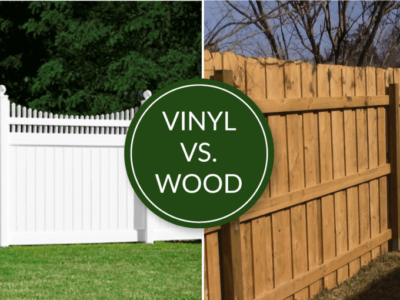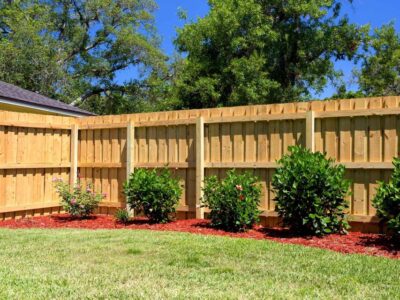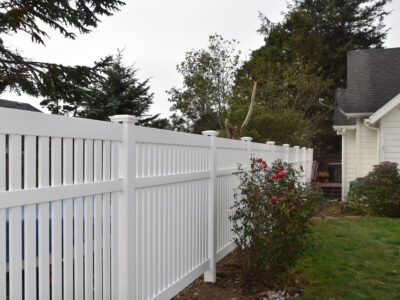Are you considering getting a new fence or repairing an existing one? Choosing a fencing contractor can be a daunting task, especially with so many options available. Whether you need a fence for privacy, security, or aesthetic purposes, finding a reputable and reliable contractor who can deliver quality work is crucial.
In this guide, we will discuss the key factors to consider when selecting a fencing contractor. From expertise and experience to materials and customer service, we will provide you with the essential information you need to make an informed decision.
Choosing a Fencing Contractor: Key Considerations
Let’s delve into the details of these considerations to help you select the right fencing contractor. Your decision will ultimately determine the longevity and quality of your fence, so take your time to evaluate the following aspects:
Expertise and Experience
The expertise and experience of a fencing contractor play a crucial role in the quality of the work delivered. An experienced contractor understands the intricacies of various fencing types, materials, and the best techniques to use. You can gauge their experience by the number of years they have been in the industry and by looking at their past projects.
Materials
The materials used by the contractor should be of high quality. This is essential as it directly impacts the durability and appearance of your fence. Make sure the contractor is transparent about where they source their materials.
Customer Service
Excellent customer service is a critical factor in any business, and fencing contractors are no exception. The contractor should be responsive and courteous, answering your questions thoroughly and providing clear communication throughout the project. Check out their reviews and ratings to get an idea of how they treat their customers.
Licensing and Insurance
Ensure your prospective fencing contractor is licensed and insured. This will protect you from any liability in case of accidents or injuries during the project. It also acts as proof of the contractor’s credibility and adherence to industry standards.
Cost and Estimates
Understanding the cost structure and getting a detailed estimate from your preferred fencing contractor is crucial. This estimate should include the cost of materials, labor, and any additional charges that may be incurred during the project. Avoid contractors who quote exceptionally low prices, as they may compromise on the quality of materials or service. Remember that a well-built and high-quality fence is a long-term investment.
Reputation and References
Reputation is often a reliable indicator of the quality of service a fencing contractor provides. Look for contractors with positive reviews and feedback from previous clients. Do not hesitate to ask for references. Speaking directly with previous clients can give you a clear and honest insight into the contractor’s work quality, reliability, and professionalism.
Guarantee and After-service
A reputable fencing contractor should provide a warranty or guarantee on their work. This shows confidence in the quality of their work and their commitment to customer satisfaction. Post-installation services, such as maintenance and repairs, should also be part of the package. Make sure you understand the terms and conditions of the warranty or guarantee before signing the contract.
How to Select the Best Fencing for Your Project
Choosing the right fence involves more than just selecting a style you like; you also need to consider the function of the fence, the effort and cost of maintenance, and the climate of your area. Here are some tips to help you select the best fencing for your project.
Consider Your Needs
Think about the purpose of your fence. Are you looking for privacy, security, or aesthetic appeal? Your needs will dictate the type of fence that is best suited for your project. For instance, if privacy is your main concern, you might opt for a tall, solid fence. If you’re more focused on aesthetics, a decorative picket fence could be the perfect addition to your yard.
Choose a Material that Suits Your Climate
The material you choose for your fence will significantly impact its durability and maintenance requirements. If you live in a damp or humid area, you might want to avoid wooden fences, which can rot or warp. Alternatively, materials like vinyl or metal may be more suitable as they resist water damage.
Think About Maintenance
Fences require regular maintenance to keep them in good condition. Some materials, like wood, may need to be painted or stained every few years, while others, like vinyl or aluminum, require little to no maintenance. Consider how much time and effort you are willing to invest in maintaining your fence before deciding.
Factor in Cost
The cost of fencing materials varies widely, from inexpensive options like chain-link to more costly materials like wrought iron. Remember to factor in the cost of installation and ongoing maintenance when considering your budget.
Consult with a Professional
If you’re unsure about the best type of fence for your needs, it may be worth consulting with a fencing contractor. They can provide expert advice based on their experience and knowledge of different fencing materials and styles. They can also help you understand the installation process and any potential challenges that might arise.
Take into Account Local Regulations
Before you embark on your fencing project, familiarize yourself with local zoning laws and Homeowners Association (HOA) rules, if applicable. Some localities may have restrictions on the type, height, and placement of fences. Violating these regulations might lead to fines or the need for modifications after the fence is erected.
Consider the Impact on Your Neighbors
It’s also essential to consider how your fence might impact your neighbors. A fence that blocks their view or encroaches on their property might lead to disputes. It’s always a good idea to discuss your plans with them ahead of time.
Choose a Style that Complements Your Home
Lastly, the style of your fence should complement the architectural style of your home to enhance curb appeal. For example, a traditional picket fence might suit a cottage-style home, while a sleek, modern metal fence may be a better match for a contemporary home. A professional fencing contractor can give you advice on the best styles to complement your home.
Final Thoughts
Selecting the right fencing contractor and materials for your project requires careful consideration. Don’t rush into a decision; take the time to research and consult with professionals before making a choice. By considering factors such as licensing, reputation, cost, maintenance, regulations, and style, you can ensure that you end up with a high-quality fence that meets your needs and adds value to your property.














Comments